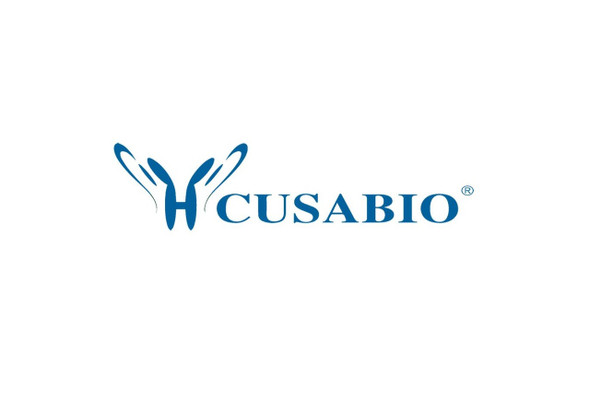Cusabio Virus & Bacteria Recombinants
Recombinant Caulobacter vibrioides Alpha-ketoglutarate-dependent dioxygenase AlkB homolog (alkB) | CSB-EP489400DQP
- SKU:
- CSB-EP489400DQP
- Availability:
- 3 - 7 Working Days
Description
Recombinant Caulobacter vibrioides Alpha-ketoglutarate-dependent dioxygenase AlkB homolog (alkB) | CSB-EP489400DQP | Cusabio
Alternative Name(s): DNA oxidative demethylase AlkB
Gene Names: alkB
Research Areas: Epigenetics and Nuclear Signaling
Organism: Caulobacter vibrioides (strain NA1000 / CB15N) (Caulobacter crescentus)
AA Sequence: MAVVRRAVAARGLQMIAKPLTVVPGFDVWPGLLDISAQRALVEAVLAGAEQAPFSNYRTAYGKPMSVAMTALGSLGWTSDARGYRYVDRHPETGRPWPDMPPALLDLWTVLGDPETPPDSCLVNLYRDGARMGLHQDRDEADPRFPVLSISLGDTAVFRIGGVNRKDPTRSLRLASGDVCRLLGPARLAFHGVDRILPGSSSLVPGGGRINLTLRRARTA
Source: E.coli
Tag Info: N-terminal 10xHis-tagged and C-terminal Myc-tagged
Expression Region: 1-220aa
Sequence Info: Full Length
MW: 31.2 kDa
Purity: Greater than 85% as determined by SDS-PAGE.
Relevance: Dioxygenase that repairs alkylated DNA and RNA containing 3-methylcytosine or 1-methyladenine by oxidative demethylation. Has highest activity towards 3-methylcytosine. Has lower activity towards alkylated DNA containing ethenoadenine, and no detectable activity towards 1-methylguanine or 3-methylthymine. Accepts double-stranded and single-stranded substrates. Requires molecular oxygen, alpha-ketoglutarate and iron. Provides extensive resistance to alkylating agents such as MMS and DMS, but not to MMNG and MNU.By similarity
Reference: "An alkB gene homolog is differentially transcribed during the Caulobacter crescentus cell cycle." Colombi D., Gomes S.L. J. Bacteriol. 179:3139-3145(1997)
Storage: The shelf life is related to many factors, storage state, buffer ingredients, storage temperature and the stability of the protein itself. Generally, the shelf life of liquid form is 6 months at -20?/-80?. The shelf life of lyophilized form is 12 months at -20?/-80?.
Notes: Repeated freezing and thawing is not recommended. Store working aliquots at 4? for up to one week.
Function:
Involvement in disease:
Subcellular Location:
Protein Families:
Tissue Specificity:
Paythway:
Form: Liquid or Lyophilized powder
Buffer: If the delivery form is liquid, the default storage buffer is Tris/PBS-based buffer, 5%-50% glycerol. If the delivery form is lyophilized powder, the buffer before lyophilization is Tris/PBS-based buffer, 6% Trehalose, pH 8.0.
Reconstitution: We recommend that this vial be briefly centrifuged prior to opening to bring the contents to the bottom. Please reconstitute protein in deionized sterile water to a concentration of 0.1-1.0 mg/mL.We recommend to add 5-50% of glycerol (final concentration) and aliquot for long-term storage at -20?/-80?. Our default final concentration of glycerol is 50%. Customers could use it as reference.
Uniprot ID: B8GWW6
HGNC Database Link: N/A
UniGene Database Link: N/A
KEGG Database Link: N/A
STRING Database Link: N/A
OMIM Database Link: N/A









